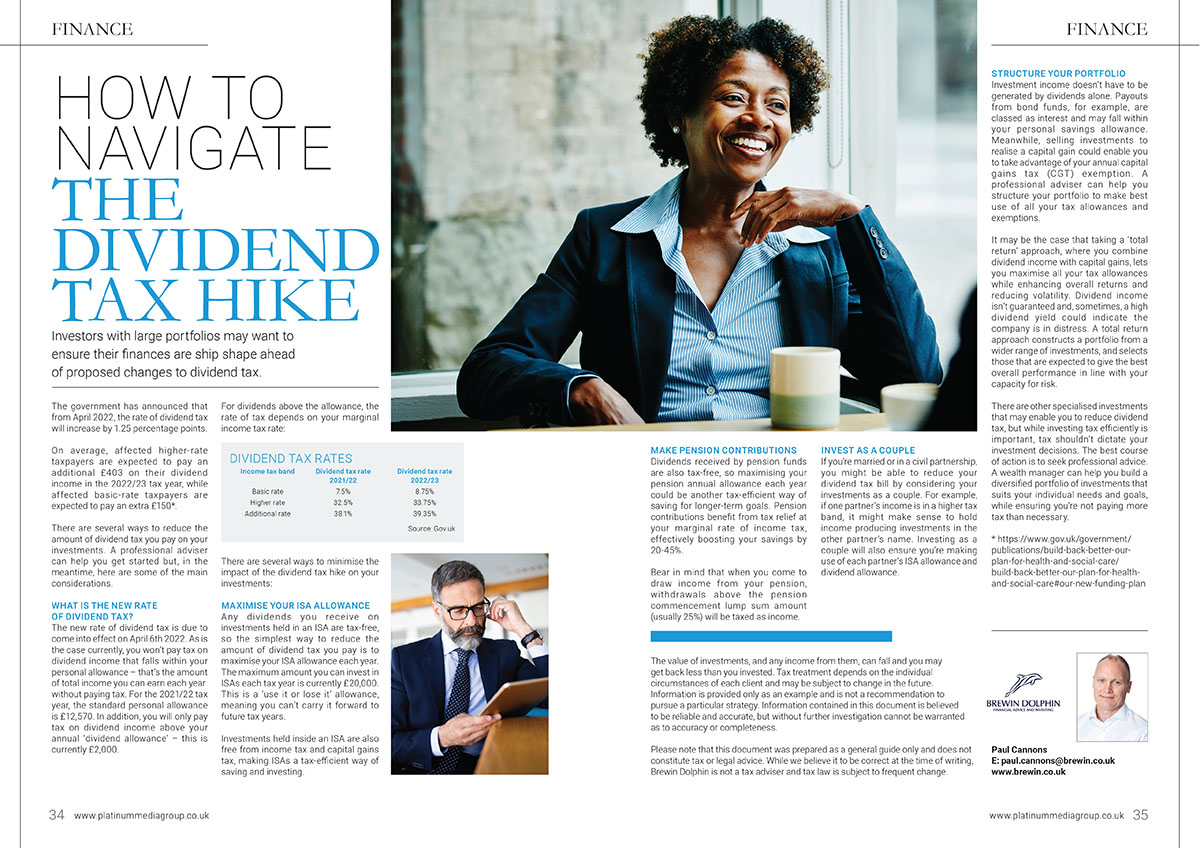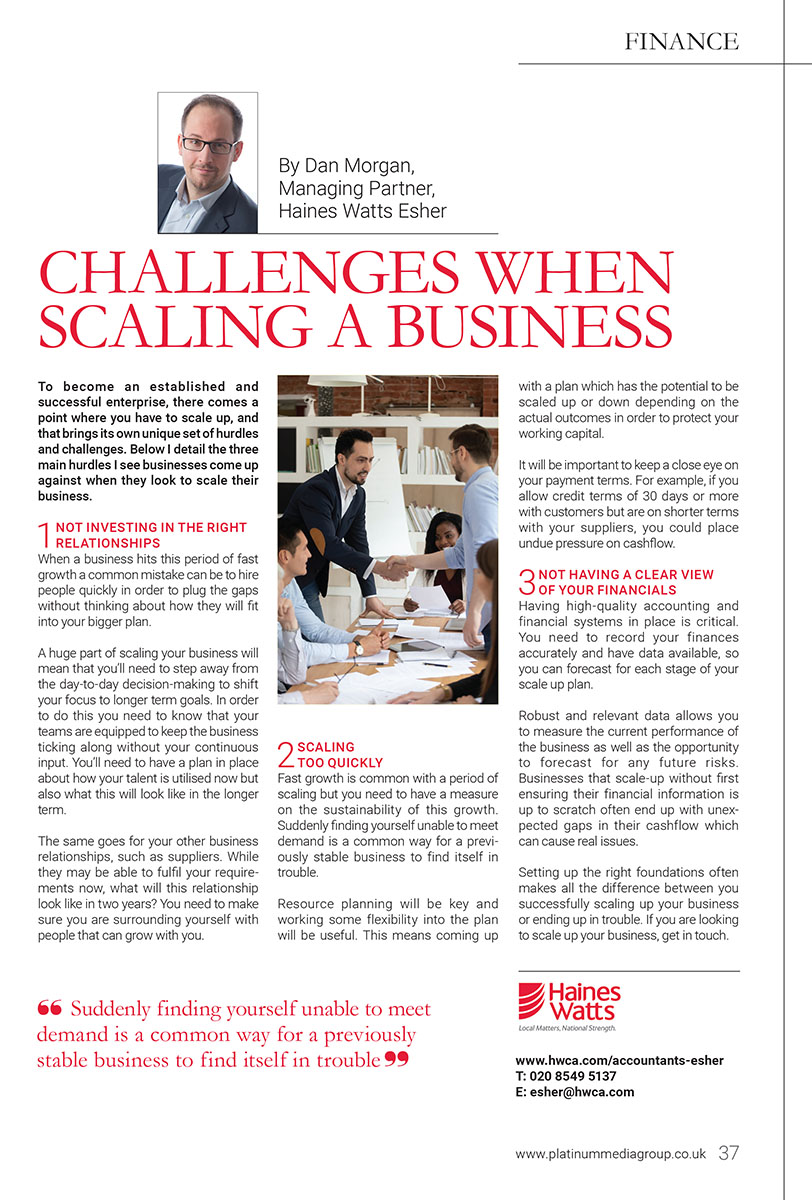
Investors with large portfolios may want to ensure their finances are ship shape ahead of proposed changes to dividend tax.
Dividend tax rates
| Income tax band | Dividend tax rate 2021/22 |
Dividend tax rate 2022/23 |
| Basic rate | 7.5% | 8.75% |
| Higher rate | 32.5% | 33.75% |
| Additional rate | 38.1% | 39.35% |
The government has announced that from April 2022, the rate of dividend tax will increase by 1.25 percentage points.
On average, affected higher-rate taxpayers are expected to pay an additional £403 on their dividend income in the 2022/23 tax year, while affected basic-rate taxpayers are expected to pay an extra £150*.
There are several ways to reduce the amount of dividend tax you pay on your investments. A professional adviser can help you get started but, in the meantime, here are some of the main considerations.
What is the new rate of dividend tax?
The new rate of dividend tax is due to come into effect on April 6th 2022. As is the case currently, you won’t pay tax on dividend income that falls within your personal allowance – that’s the amount of total income you can earn each year
without paying tax. For the 2021/22 tax year, the standard personal allowance is £12,570. In addition, you will only pay tax on dividend income above your annual ‘dividend allowance’ – this is currently £2,000.
For dividends above the allowance, the rate of tax depends on your marginal income tax rate:
There are several ways to minimise the impact of the dividend tax hike on your investments:
Maximise your ISA allowance
Any dividends you receive on investments held in an ISA are tax-free, so the simplest way to reduce the amount of dividend tax you pay is to maximise your ISA allowance each year. The maximum amount you can invest in ISAs each tax year is currently £20,000. This is a ‘use it or lose it’ allowance, meaning you can’t carry it forward to future tax years.
Investments held inside an ISA are also free from income tax and capital gains tax, making ISAs a tax-efficient way of saving and investing.
Make pension contributions
Dividends received by pension funds are also tax-free, so maximising your pension annual allowance each year could be another tax-efficient way of saving for longer-term goals. Pension contributions benefit from tax relief at your marginal rate of income tax, effectively boosting your savings by 20-45%.
Bear in mind that when you come to draw income from your pension, withdrawals above the pension commencement lump sum amount (usually 25%) will be taxed as income.
Invest as a couple
If you’re married or in a civil partnership, you might be able to reduce your dividend tax bill by considering your investments as a couple. For example, if one partner’s income is in a higher tax band, it might make sense to hold income producing investments in the other partner’s name. Investing as a couple will also ensure you’re making use of each partner’s ISA allowance and dividend allowance.
Structure your portfolio
Investment income doesn’t have to be generated by dividends alone. Payouts from bond funds, for example, are classed as interest and may fall within your personal savings allowance. Meanwhile, selling investments to realise a capital gain could enable you to take advantage of your annual capital gains tax (CGT) exemption. A professional adviser can help you structure your portfolio to make best use of all your tax allowances and exemptions.
It may be the case that taking a ‘total return’ approach, where you combine dividend income with capital gains, lets you maximise all your tax allowances while enhancing overall returns and reducing volatility. Dividend income isn’t guaranteed and, sometimes, a high dividend yield could indicate the company is in distress. A total return approach constructs a portfolio from a wider range of investments, and selects those that are expected to give the best overall performance in line with your capacity for risk.
There are other specialised investments that may enable you to reduce dividend tax, but while investing tax efficiently is important, tax shouldn’t dictate your investment decisions. The best course of action is to seek professional advice. A wealth manager can help you build a diversified portfolio of investments that suits your individual needs and goals, while ensuring you’re not paying more tax than necessary.
Paul Cannons
E: paul.cannons@brewin.co.uk
www.brewin.co.uk




